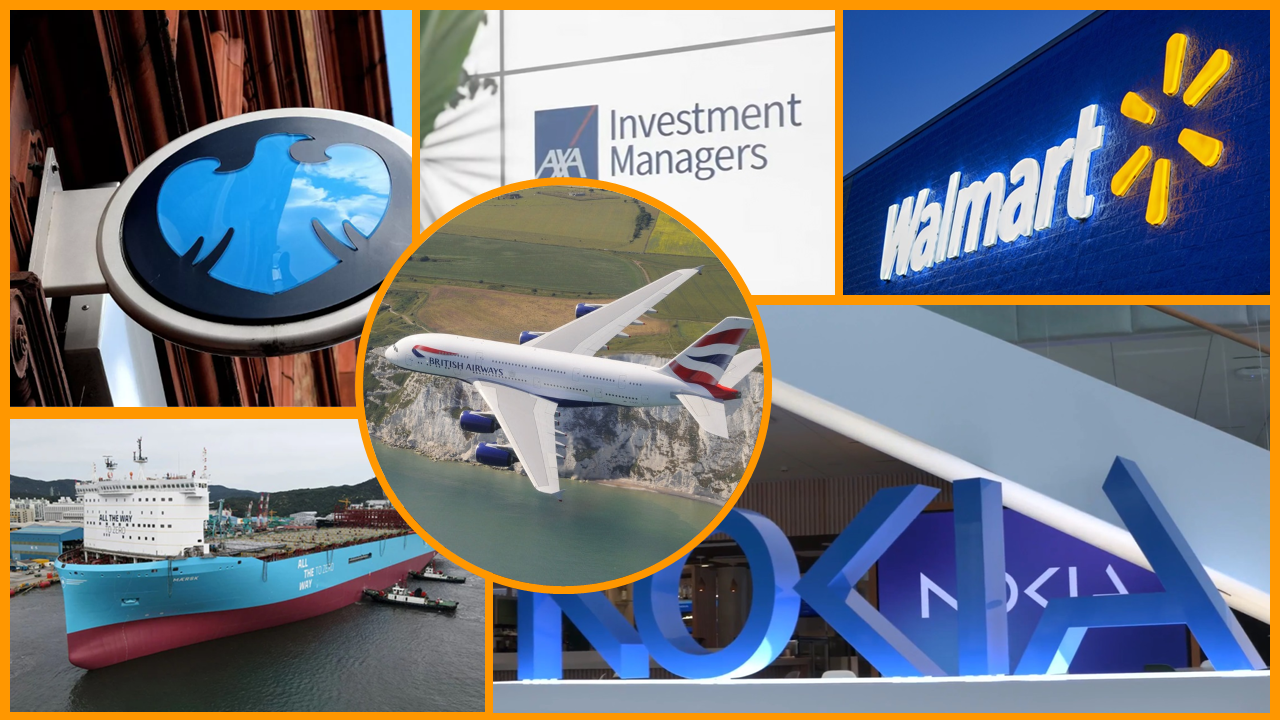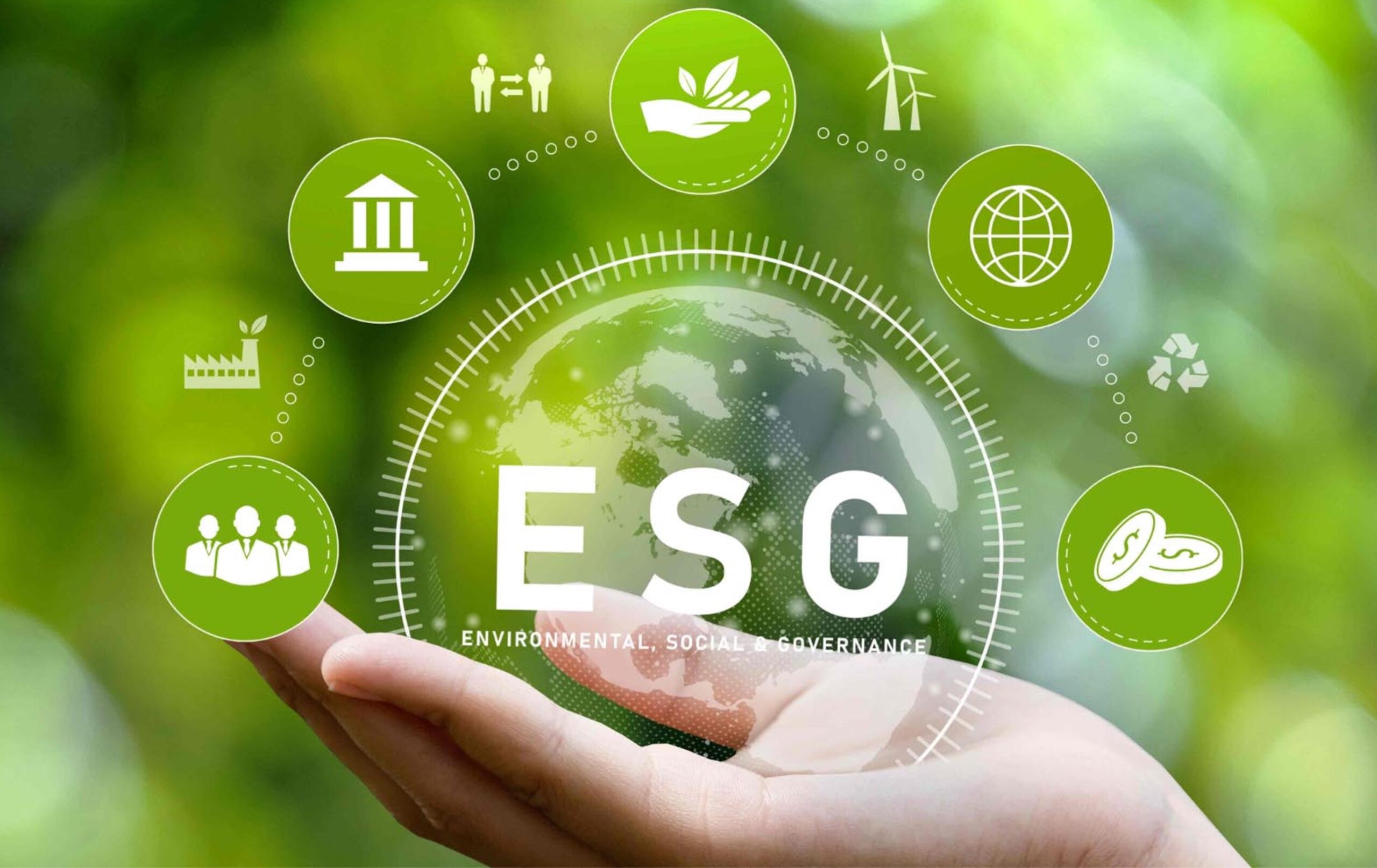What trend is driving leading businesses to act now?
February 2024 has witnessed a remarkable surge in corporate announcements by leading businesses, each underscoring a commitment to sustainability, climate action, and adherence to Environmental, Social, and Governance (ESG) principles.
This trend, spanning various industry sectors, signifies a broader shift in the business landscape towards more responsible practices.
- Barclays, a leading player in the financial services sector, has taken a significant step by ending direct financing of new oil and gas fields1. This move, aligning with actions by other major European banks, marks a crucial pivot towards supporting projects that contribute to a sustainable future, albeit covering only a fraction of their oil and gas lending.
- In the telecommunications and networking technology sector, Nokia has accelerated its climate goals, committing to net-zero greenhouse gas emissions across its operations and value chain by 20402. This ambitious target, brought forward by a decade, is underpinned by a series of initiatives aimed at decarbonising its operations and enhancing the energy efficiency of its products.
- The pension fund industry has also shown leadership, with Netherlands-based PFZW divesting from over 300 fossil fuel companies lacking robust decarbonisation plans3. This bold move, resulting in the sale of €2.8 billion of securities, reflects a growing trend among institutional investors to demand greater climate accountability from their investment portfolios.
- In the aviation sector, International Airlines Group (IAG) has announced its largest sustainable aviation fuel (SAF) purchase agreement to date4. This agreement, involving nearly 1 billion litres of SAF from Twelve, underscores the group’s commitment to reducing lifecycle greenhouse gas emissions and achieving its net-zero goals.
- A.P. Moller-Maersk, a giant in integrated container logistics, has had its ambitious greenhouse gas emissions targets validated by the Science Based Targets initiative (SBTi)5. The company’s commitment to achieving net zero by 2040 and setting interim targets for emissions reduction highlights the maritime sector’s role in addressing climate change.
- Walmart, the retail behemoth, has achieved its goal of reducing greenhouse gas emissions by 1 billion metric tons across its product supply chain, six years ahead of its 2030 target6. This milestone, achieved through the Project Gigaton initiative, exemplifies how collaborative efforts can lead to significant environmental impacts.
- Lastly, AXA Investment Managers has updated its corporate governance & voting policy to include more stringent ESG expectations7. The firm’s pledge to vote against high emissions companies lobbying against the goals of the Paris Agreement signals a growing emphasis on aligning corporate lobbying activities with stated climate goals.
The Trend Amongst Leading Businesses is Unmistakable
These announcements, made in February, are not isolated incidents but part of a wider trend reflecting the increasing importance of sustainability and climate action in corporate strategy. They demonstrate a collective move towards more sustainable business practices across different sectors, driven by a recognition of the urgent need to address climate change and comply with ESG pressures.
Why Should Sales and Marketing Leaders in B2B Markets Take Notice?
As the world grapples with the escalating impacts of climate change, these announcements in a single month provide yet more signals of a major shift in the global business community. This strategy challenges the status quo and signals a broader shift toward sustainability and Environmental, Social, and Governance (ESG) principles. For sales and marketing teams, it heralds a period of significant transformation, emphasising the need to adapt and innovate within an increasingly ESG-focused business environment.
Why Now?
Recent data pointing to the potential breach of critical global temperature thresholds underscores the pressing need for climate action8. Recent urgent insights provided by climate science are causing more and more businesses to weave sustainability into the fabric of their strategic planning9 At this critical juncture, businesses that prioritise long-term sustainability and align with the scientific consensus on climate change are all starting to act. They are not just supporting global action, they are also fortifying their own future success and resilience.
The stark contrast between leading companies actively integrating ESG principles into their operations and those trailing behind highlights the need for a strategic approach to sustainability. These leaders are also making careful assessments of their business partnerships and suppliers. They are beginning to prioritise alliances with organisations that also that demonstrate a sincere commitment to sustainability. This is part of their business resilience action plan. They are ensuring alignment and mutual success in an evolving business ecosystem. . Companies that heed this call are setting themselves apart, showcasing innovation, resilience, and ethical leadership in a world facing unprecedented environmental challenges.
Sales and marketing leaders in all sectors need to consider the implications of this shift.
The trend is clear; February’s announcements provide growing evidence of a significant shift in the business landscape. Your clients and prospects are taking real action. These leading businesses are also signposting a market direction. This has big implications for any supplier, who is part of their supply chains as the pressure to understand and align with their ESG actions will increase. It is also set to spread to more and more companies driven by wider stakeholder pressures from customers, employees, investors and governments.
Now is the time for sales and marketing teams to embrace the critical importance of sustainability and the strategic benefits of alignment with the ESG goals of their clients. It’s time to consider how your business and teams can respond to these changes. For most, it can be an opportunity to deepen relationships and expand business development opportunities. Inaction will risk missed opportunities, less account influence and an even stronger sales headwinds.
If you are interested in how your organisation can make the most of this trend, Cambium can help.
We specialise in helping sales and marketing teams in business-to-business markets leverage all aspects of the sustainability agenda to boost opportunity discovery, grow sales pipelines, increase revenues and expand market share.
Discover how your business can harness this strategic shift amongst leading businesses
Links to the actions of these leading businesses:
1 – Barclays’ announcement to end direct financing of new oil and gas fields. Nokia’s commitment to achieving net-zero greenhouse gas emissions by 2040.
2 – Nokia’s commitment to achieving net-zero greenhouse gas emissions by 2040.
3 – PFZW’s divestment from over 300 fossil fuel companies.
4 – IAG’s sustainable aviation fuel purchase agreement for nearly 1 billion litres.
5 – A.P. Moller-Maersk’s greenhouse gas emissions targets validated by the SBTi.
6 – Walmart’s achievement of reducing 1 billion metric tons of supply chain emissions.
7 – AXA IM’s updated corporate governance & voting policy to target companies lobbying against climate goals.
9 – World’s first year-long breach of key 1.5C warming limit







